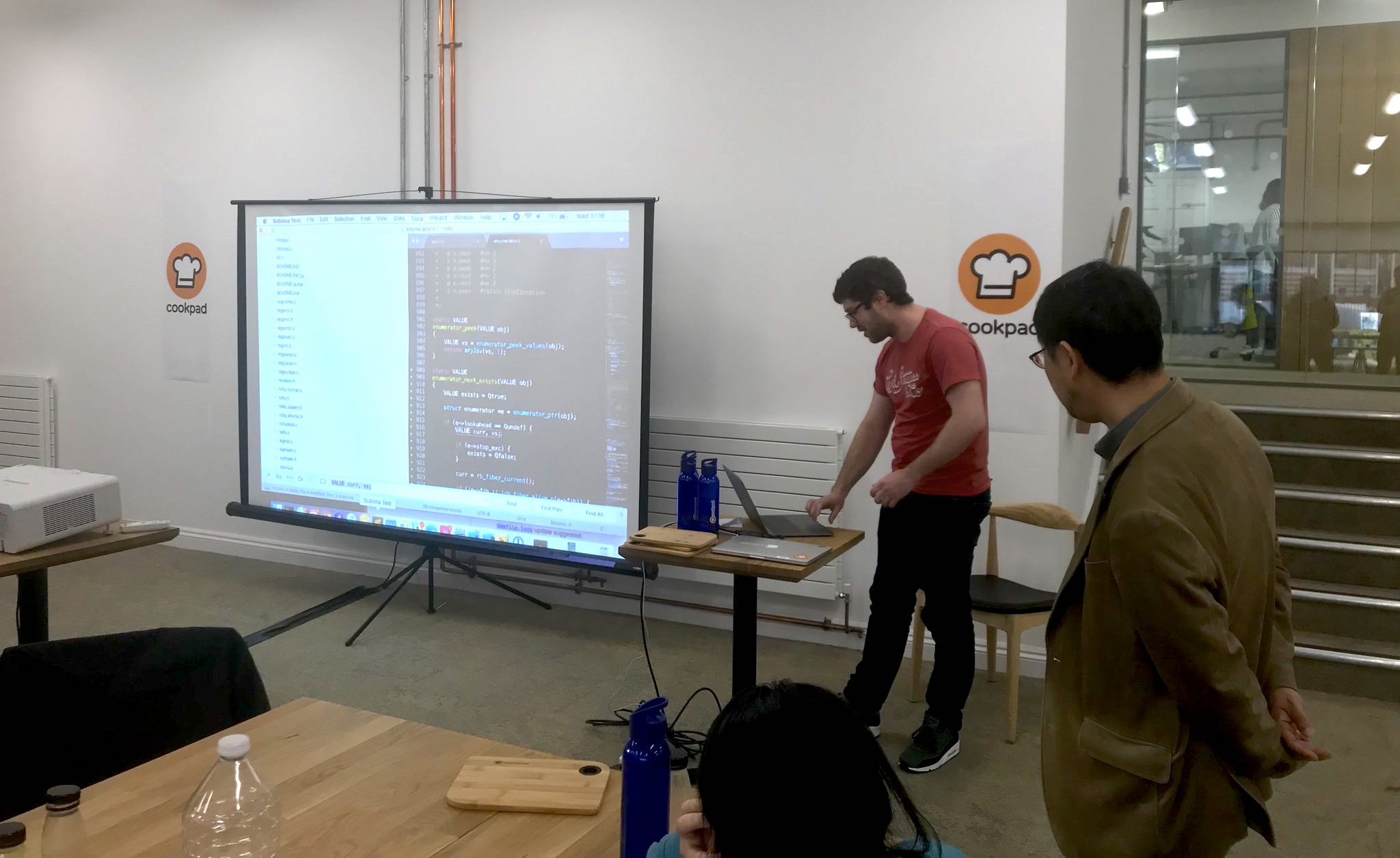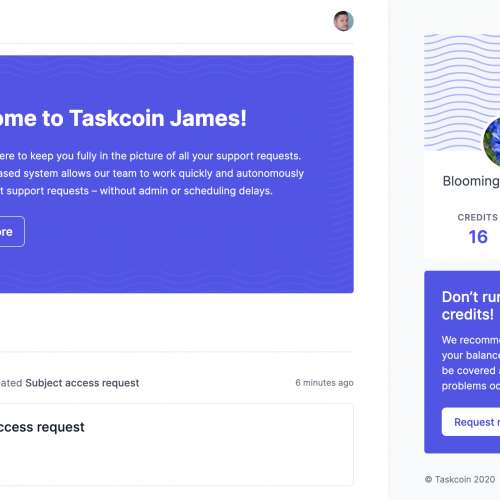In the world of tech, many regard the expert prestige of promotion to Chief Technology Officer (CTO) as the ultimate in career progression. Often involving both business and technical expertise, CTOs are the glue that bind executive-level decision makers with the ground-level technical innovation going on within the whole company.
For newbies in tech fields, junior developers and post-GCSE educational nomads deciding on potential career ladders, a quick Google search will find that the prevailing advice for those wanting to become a CTO is to start with a tech or business related degree. Ignoring many of the other important key factors for being a great CTO, these advice pieces are arguably part of the reason tech is struggling to attract the diverse talent that it needs for successful growth and prosperity.
Earlier this year Simpleweb celebrated the promotion of tech lead Tom Coates to the leadership team as CTO, leaving us to reflect on the range of qualities that make a successful CTO. Keen for a fresh perspective on the matter, and knowing that Tom had made his way into tech along a lesser trodden path, we grabbed a cuppa and had a chat about how he found his way there.
Abandoning academia
In many ways Tom’s technical background was that of your average millennial geek. When he was 9-years-old he was bought his first computer by his grandparents and spent many hours discovering a virus-filled early internet world.
I’d just tinker until I got things to work
“Back then installing software was never as simple as clicking install and it’d be working. So you’d just tinker until you got things to work. And sometimes you’d break things”, Tom tells us. “It was just a case of fixing it before my parents found out it was broken.”
The years that passed had Tom experimenting with his own HTML web pages and enthusiastically passing on his knowledge to fellow students (and sometimes teachers too). Nonetheless, nonplussed by the academic world, Tom left school half way through his A-levels with a handful of C-grade GCSEs, preferring instead to focus on hard graft with a job at electrical retailer Comet.
“My parents don’t come from a background of going to university and stuff like that. But they’re both really hard workers. I felt the same, I just wanted to go out there and work and improve myself that way rather than going to university.”
“I just like helping people”
Luckily for Tom, his first role at Comet was based in their head office and, with his natural inclination toward tinkering and improving processes, he was soon shifted around the organisation, learning as he went along. From customer support, to transport logistics, Tom was eventually invited to help set up a customer tech support team.
I really enjoy teaching people and talking through things
“I really enjoy teaching people and talking through things. So when I was on that department and a customer rang with a problem that the team member didn’t know how to fix it, I would really enjoy just sitting down and talking them through it to a point where they’d learned something and the customer was really happy.”
During this time, Tom largely kept his code tinkering as a hobby. But another move into Comet’s HR department containing some clunky enterprise software meant he started building interfaces to improve the user experience for his colleagues at work.
When Comet was famously sold for just £2, the company was restructured and the new owners recognised the work Tom and his team had done.
With the new owners quickly abandoning the expensive enterprise software, Tom and his fellow coders were tasked with building company software from scratch, marking the official beginning of Tom’s professional career as a developer.
An ad in the paper
A few years later, with Comet’s heydays firmly down the pan and far from the dizzying heights of LinkedIn degrees of separation and prosecco-fuelled networking events, Tom’s entry into the world of tech startups came from an application initiated by an ad in the local paper.
Starting off as a junior PHP developer, joining Simpleweb was a leap into the unknown and full of lessons from the get go, but as Tom explains: “The biggest difference was getting used to the pace of the projects but that’s just because of the time constraints that we have working with startups.
“We were also using things like Ruby on Rails and lots of other stuff that was all new to me,so I had to pick that up pretty quickly. But it was really good to be introducing some new languages and frameworks.”

Knowledge sharing: Tom pictured presenting at a workshop earlier this year with Ruby founder Yukihiro Matsumoto
Coming from such a small tech contingent however, to a dedicated team of developers, had its benefits too. “Coming to work for a Simpleweb where there were lots of really clever people was great”, Tom tells us. “I noticed that they were really happy to listen to each other’s opinions and work together to to come up the best solution.”
Stepping up
As he picked up new coding languages, frameworks and tools, Tom found his draw towards helping and teaching others found him regularly training up newbies to the company or pair-programming with teammates which were one of the most enjoyable parts of his job.
So, he says: “When [Simpleweb’s co-founder and CEO] Mark asked if I wanted to be CTO, I was really happy. I’ve always wanted to stay with Simpleweb, help it grow and watch it evolve. It’s changed so much in the short time I’ve been here that I can see all the possibilities for us going forward.”
I’m pretty sure you don’t need a fancy degree to enter the tech industry
Leaping up the career ladder to the responsibilities of CTO hasn’t been without its challenges, as Tom tells us: “It’s definitely a Simpleweb thing to throw-people in at the deep end. I’ve previously stepped in to cover holidays on the technical side of things but, prior to becoming CTO, I’d not had much exposure to the business side of things – the day-to-day runnings and early-stage conversations with clients – but I’ve actually really enjoyed it, more than I thought I would.
“The great thing is that even if you’re out of your comfort zone, either as a developer or like myself getting used to the business side of things, there’s plenty of support from the team.
“One of the reasons I like Simpleweb is that every day is different. And when there’s always something new to jump in and get involved with, there’s always a little achievement each day.”
On becoming CTO
So, to those looking to work their way to to CTO, Googling the stages and worrying about their A-level results, Tom says: “I’m pretty sure you don’t need a fancy degree to enter the tech industry. If coding is your hobby, you’re going to be naturally inclined to keep doing it.
Be ready to be thrown in at the deep end
“The open source community is a great place to start, I see so many young people with open source projects and building their own things.
“But make sure you have a GitHub account with some projects that you’ve done and some examples, that way you can quite easily let people know about what you’re doing.”
And when you’re ready to enter the tech world professionally, Tom adds: “You’ve got to be ready to put yourself out there and be thrown in at the deep end. The tech industry certainly is now more open to people coming in from all walks of life and different backgrounds.
“So, more than anything, just believe in yourself that you can do it.”
If you’d like to discuss your startup or project, get in touch with Simpleweb today.



